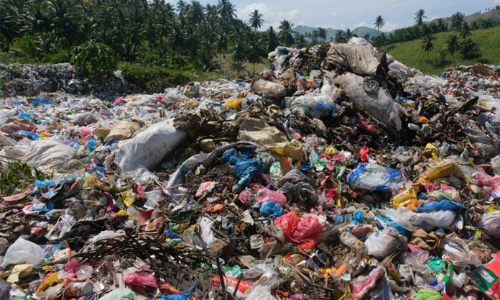Philippines survey shows \'shocking\' plastic waste

An audit in the Philippines has shown the country uses a shocking amount of singleuse plastic, including nearly 60 billion sachets a year, a new report said Friday
Manila: An audit in the Philippines has shown the country uses a "shocking" amount of single-use plastic, including nearly 60 billion sachets a year, a new report said Friday.
The report, produced by the NGO GAIA, is part of an effort to collect data on plastic consumption as environmentalists push for government action to reduce plastic waste. It contains eye-popping figures: every day, almost 57 million shopping bags are used throughout the Philippines, adding up to more than 20 billion a year. And that figure does not include the smaller, thinner and often transparent plastic bags known as "labo" bags -- around 16.5 billion of those are used per year across the country, the report says.
The figures are based on 21 waste assessments conducted in six cities and seven municipalities across the Philippines, with the national figures produced by extrapolating from local results. More than half of non-recyclable plastic analysed in the survey came from sachets -- small plastic packets often lined with aluminium or containing other materials that make them non-recyclable. "On a per capita basis, it's about one sachet per person per day," said Froilan Grate, executive director of GAIA's Asia-Pacific office.
"But on a per year, per city basis, it's quite shocking. It runs into the millions and billions depending on the place," he told AFP. Small portions of products ranging from coffee to shampoo are often sold in sachets in the Philippines, and are seen as an affordable solution for consumers. But Grate said the popularity appeared to be more a result of what is available, with wealthier consumers simply buying multiple sachets. "If you go to the supermarkets, it's rare for you to be able to buy coffee in bigger containers, it's all in sachets," he said. The survey is the first time an organisation has tried to quantify sachet use, and the NGO hopes to pressure both the government and industry to take action on curbing single-use plastic.
The report found that where local-level plastic bag bans have been put in place and rigorously enforced, usage has dropped dramatically. It urged the government to "institute a comprehensive national plastic bag ban that promotes reusable bags". And it wants regulations on other single-use plastic products and rules requiring companies to redesign products and packaging to minimise plastic waste. Grate said it was hard to compare plastic usage in the Philippines with other countries in the region.
"There is a lack of available, evidence-backed data," he said. "That's a problem and is our main reason for doing this (survey)." Plastic pollution is a major problem in the Philippines, which -- along with China, Vietnam and Indonesia -- is frequently listed among the world's worst offenders, particularly on marine plastic pollution.








